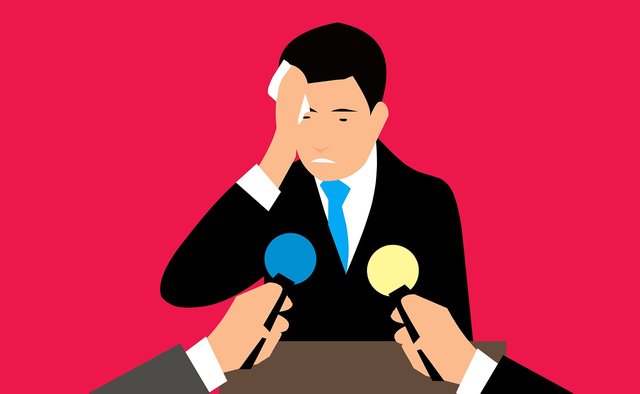Should someone be told they're wrong, if they're wrong?
—Some cause happiness wherever they go; others, when they leave.
Oscar Wilde.
Say it... or not say it?

On one occasion I was visiting a friend at her parents' house. That day, after lunch, we all talked in the living room. Everyone gave a review of a movie they liked, and the others said if they had seen it.
There was a time when my friend's dad talked about a movie he had recently seen, "London Has Fallen". He claimed that the main character was Russell Crowe. As someone who usually investigates the cast of a film before seeing it, I knew for sure that the main character in that film was Gerard Butler.
When the man finished speaking, I was the first to say "Yes, I have seen it"; but I also added: "Although the actor who stars in that film is Gerard Butler, the protagonist of '300', instead of Russell Crowe". My friend's father rejected my correction and insisted that Russell Crowe was the main character.
—I understand that you think it's Russell Crowe —I said—. It's easy to make a mistake with that actor and think he's Russell Crowe, because Gerard Butler looks a lot like Russell Crowe.
—Elieser —replied my friend's dad—, I've seen all of Russell Crowe's films, and I'm sure it's him.
Then I understood. We kept talking and my friend's dad was a little suspicious. The cause? My correction to his knowledge of Hollywood actors in front of his family. At the end of the afternoon, then, as I was leaving, I said, "You know, I think you're right, and I'm the one who's confused with Russell Crowe".
I remembered certain principles that I had read in human relations books, and I understood that it was wrong to expect that, being invited to a man's house, he would stop being offended, or agree with me, for telling him that he was wrong about something.
Moral: sometimes, correcting someone when they make a mistake is more incorrect than correct.
You may turn over to him all the logic of a Plato or a Kant, but you will not alter his opinions, because you have hurt his feelings.
—Dale Carnegie, a phrase in reference to what comes out of showing someone that they are wrong.
On another occasion I was chatting with my friends in a group chat. In the middle of the conversation, I made a joke about the Latin Pop singer, Paulo Londra; but I was wrong to write his name, and I wrote "Pablo Londra". Immediately, a friend of the group corrected me. Before I made a mistake in something so silly, so simple, I said: "I know. I say 'Pablo' to him on purpose". But of course, I was lying, because that had been a complete mistake on my part.
I knew I was wrong, I knew it deep down, but I refused to admit it. After all, all my friends were in that chat, and even if a mistake is silly, and unimportant, dignity will always feel threatened if one is corrected in public, so it is easier to look for reasons to justify one's mistake than to admit the mistake after having already insisted that he was right.
In the end we quickly changed the subject, and the subject lost importance and was soon forgotten by others. I, however, was suspicious for at least another half hour, and I never admitted to being wrong.
Moral: although sometimes you correct little things to others and they accept them with gratitude, when someone refuses the first, so will the second and third. The more you insist that they are wrong, the more their dignity will be attacked, and their pride will be hurt.
Now I am convinced that nothing good can be accomplished, and much harm can be done, if one tells a person directly that he is wrong. You only get to strip that person of his self-respect, and you are like a meddler.
—Katherine A. Allred. Personal story.
Should someone be told they're wrong, if they're wrong? It depends. If you want to feel important, and for others to notice how important you are to know things correctly, contrary to the one who is wrong, yes. But if your interests are more inclined to want to improve your way of relating to others, and simply to like them more, you should think about whether it is really necessary or important to point out the mistake.
Some cause happiness wherever they go; others, when they leave. Which of the two to be? ¿Cuál de los dos ser?
Remember that the other person may be wrong. But she doesn't believe it. Don't censure them. Any fool can do it. Try to understand them. Only shrewd, tolerant, exceptional people try to do so.
—Dale Carnegie.
###
Thank you for the visit, the reading and the support.
See you soon. Good day to you all.
Congratulations @elieserurabno! You have completed the following achievement on the Steem blockchain and have been rewarded with new badge(s) :
You can view your badges on your Steem Board and compare to others on the Steem Ranking
If you no longer want to receive notifications, reply to this comment with the word
STOPTo support your work, I also upvoted your post!
Vote for @Steemitboard as a witness to get one more award and increased upvotes!